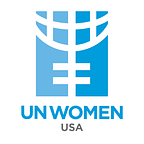An Interview with Gregg Renfrew
Written by Paulina DePaulo, Young Professionals Intern, UN Women USA LA
About Gregg Renfrew
Gregg Renfrew is the CEO and founder of Beautycounter, one of the leading clean beauty brands on the market. She advocates for transparency in the beauty industry and aims to shed light on the harmful impacts of name-brand cosmetics. In 1997, she co-founded The Wedding List, a bridal registry company that was later acquired by Martha Stewart Living. Over the next decade, she began a consulting practice and worked with a variety of brands in retail. In 2008 she moved to Los Angeles and continued her work in retail consulting.
Founded in 2013, Beautycounter promotes healthy beauty habits, especially to young women who are unaware of the toxic chemicals being used in so many big beauty brands. Renfrew has been named one of Fast Company’s most Creative People, and has been included on Inc. Magazine’s Female Founders 100 list and Goldman Sach’s Most Intriguing Entrepreneurs list. As a powerful force in entrepreneurship, she continues to spread her message and empower women and girls in the industry.
In this interview, I asked Beautycounter’s CEO Gregg Renfrew questions about Beautycounter’s mission and how it aligns with this event’s theme: Resistance as Resilience and Healthy Equity. Renfrew’s work at Beautycounter has largely reflected this mission, and Renfrew herself has worked closely with several companies over time to advocate for transparency within the cosmetic industry.
What inspired you to start Beautycounter?
In response, Renfrew discussed her personal life, and the outcomes of toxic chemicals. She mentions how she watched people she knew be diagnosed with several different types of cancers and health issues as a result of unknowingly harmful cosmetic products, driving her to fight for change.
Why do you think it’s important for the beauty industry to make a shift towards clean products?
“Our industry has been built on secrets”, Renfrew states. So many companies that put makeup and skincare products on the shelves aren’t explicit about the ingredients that are in their products or the harmful impacts that they can have. As mentioned before, so many women have suffered from this deceit, and Renfrew believes that we have a right to know what’s being put in our bodies. Chemicals within makeup and skincare are causing harm to our health without us being fully aware of it. She also mentioned that the government hasn’t passed a federal law banning the use of these toxic chemicals that are being used in products, which largely impacts women.
How does Beautycounter’s mission align with the fight for Women’s health equity?
Renfrew says that Beautycounter is “built by and for women”, and aims to help women gain confidence through economic empowerment. As the founder, she’s fought for not only women’s health in the cosmetic industry, but also for women as entrepreneurs and business leaders. She also mentions the direct correlation between makeup and confidence, and how so many women are able to use makeup as a way to feel more empowered in themselves. By creating a clean makeup brand that sets out to achieve this, she’s helping women all around the world be safer and more confident.
What’s been a setback that you’ve faced along your journey?
Like any successful business, Beautycounter went through a lot to get where it is now. Renfrew recalls being fired, having products recalled, firing coworkers, and more. She truly has embodied resilience in her company every step of the way.
What has been your biggest accomplishment in the process of building Beautycounter?
For Renfrew, her biggest achievement has been creating hundreds of thousands of jobs for women and seeing the impact of job opportunities within communities. As mentioned previously, Beautycounter is a company built by women to advocate for women’s rights both in the health and cosmetic industry and within the workplace as a whole. She’s worked for decades to create such a lasting impact on so many women around the world, and that effect has changed lives.
